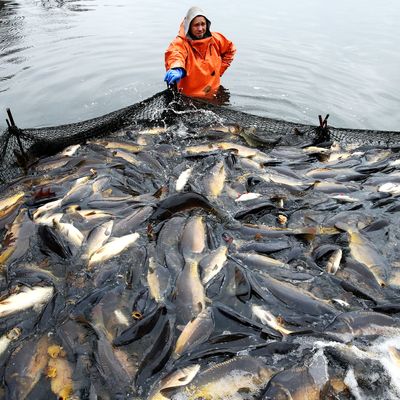
Another day, another depressing study about life in the ocean. Researchers from the University of British Columbia say that the global seafood catch has been underestimated by more than 50 percent over the last 60 years, and that 32 million metric tons of fish go unreported every year. That figure is nearly half of the 86 million metric tons that was reported in 1996, which was the highest catch reported since 1950. The authors argue that catches across the world are currently declining because stocks have been drained, and that the numbers have declined more significantly since the mid-1990s than official figures suggest because, well, there are no good fisheries left to pillage.
The reason for the discrepancy, they say, is that official statistics from the U.N.’s Food and Agriculture Organization don’t include data from discarded bycatch, illegal fishing, and smaller-scale fisheries used for both commercial and subsistence purposes. Lead author Dr. Daniel Pauly, a marine biologist who doesn’t mince words, tells the BBC that the problem is the FAO doesn’t have to “correct the data they get,” which is provided by countries “reporting only what they see.” A little digging in the Bahamas, he told the news outlet, revealed that while no small-scale fishing was reported, invoices showed that local fishermen were selling their catch directly to hotels and resorts. Underestimation varies by region from as high as 200 to 300 percent in island states to 20 to 30 percent in the developed world. Depressing.
[BBC]





